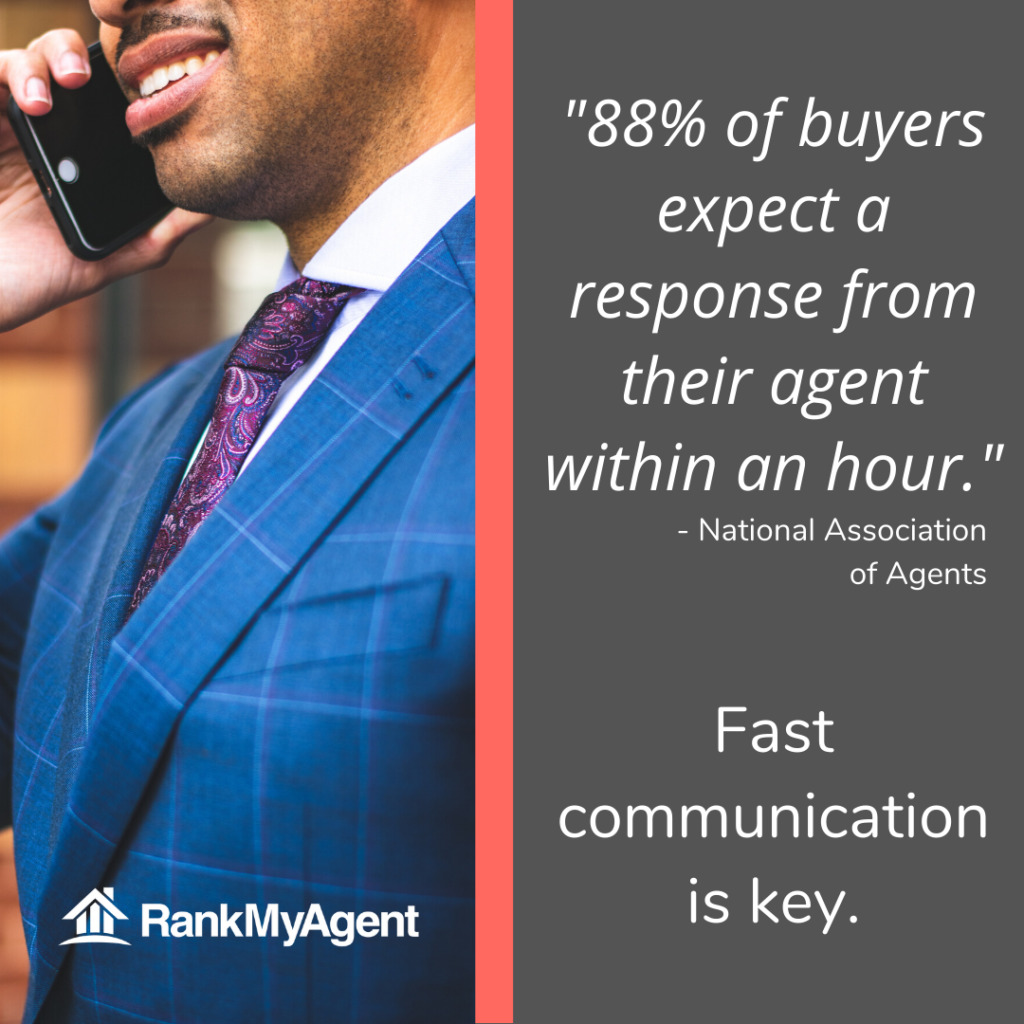Regardless of the industry, great customer service is important. But just how important is it? According to one American Express survey, 33% of customers would consider changing vendors after one experience of poor customer service. As an avid salesperson, you spend a lot of time and money just to acquire customers—whether it’s through your digital marketing strategies, networking, or other initiatives—and you shouldn’t let them get away due to a single instance of poor customer service.
What’s more, poor customer service won’t only result in clients leaving you, it can result in poor online reviews. Online reviews are core to a good digital marketing strategy. You’ll end up wasting any amounts spent on content marketing or SEO if your name has a 3 / 5-star rating beside it. This is why customer service is more important than ever.
In this article, we explain what it actually means to provide good customer service. Then, this post provides some ideas on how to avoid negative reviews through customer service, even when things go wrong.
The prior mentioned American Express survey also found that 81% of customers believe that a knowledgeable profession was important in servicing satisfaction. Furthermore, 47% of customers appreciated personalized service and 40% wanted service delivered quickly and conveniently.
So what do these statistics mean to you? First of all, it’s very important to be knowledgeable about the real estate market and about the buying-and-selling process. This requires continual education. You may think you know the answer to everything, but government policies can cause upheavals in the real estate market. It’s important to understand these policies when changes occur.
Setting up Google Alerts on the local market, talking to other realtors, and attending realtor workshops can help keep you informed. It can be embarrassing when clients ask questions and you have no idea what the answer is. However, these situations do arise, and it’s best to admit that you don’t know and will follow up with them instead of faking an answer.
If you do know everything there is about buying and selling a home, it’s also important that you can communicate that to someone who doesn’t know as much as you. Avoid fancy jargon that can confuse clients. Use language that is easy to understand and keep acronyms to a minimum.

Being a realtor evidently means working with clients, and these clients want to feel special. They’re paying you a decent-sized commission and expect more than just a series of the five best showings in the area. The best way to personalize service is to listen to your client.
But listening to your client is more than understanding their criteria and finding a home that fits that criteria. A search engine could have done that for them! Dig deeper by understanding why something is a priority for them. This could lead to you, the real estate professional, to develop ideas that are even better for the client.
Personalized service is also about going above and beyond. If you do have a listing outside of the client’s budget or area, you shouldn’t completely wipe it off the board. Tell them you know that this home is outside their budget or area but that you think it may be a good fit. The worst case scenario is that they say no. The best case scenario is that they end up with a home that they love and that they wouldn’t have otherwise seen without your suggestion.

A former National Association of Agents survey found that 88% of buyers expect a response from their agent within an hour. The home buying or home selling process can be stressful, especially for first timers. Fast communications can help ease this stress when issues or questions come up. This doesn’t mean replying to messages in the middle of the night, but it does mean replying in a timely manner.
Keeping your clients informed is another important communication tool to making sure your service is quick and reliable. Be proactive and send them updates about their listing before they need to ask you for a progress report. Also, remember to keep your clients updated with accurate and realistic timeframes and follow through on any commitments you make.
Lastly, being on time is just as key to being reliable as anything else. You should never have to make your client wait, and it’s of course good to be early. This means not overbooking yourself—no matter how tempting it can be. Being late won’t kill your deal (in most cases) but it does leave a bad impression and can make your clients less than 5-stars satisfied.

One of the best ways to prevent bad reviews (aside from providing great customer service) is by building positive rapport. By being nice and building a connection with your client, they’re less likely to complain, since we usually don’t complain about people we like. This rapport can be built on common interests, whether it’s last night’s basketball game or the new Justin Bieber song.
There are also small gestures you can add to your workflow to save yourself from a poor review. Whenever a deal closes, always request feedback about the client’s experience, either in-person or through some sort of survey or questionnaire. It’s important to listen to what the client has to say. Often, bad reviews are left by clients that felt that you were not available to listen to their concerns.
Even if the feedback is negative, it’s important to thank your client for the feedback and try to do anything you can at this point to remedy the situation. Don’t downplay or try to justify why you may have provided less-than-stellar service. This applies to soliciting feedback or if someone has left you a poor review.
By being
knowledgeable, providing personalized service, and delivering your services in
a quick, reliable, and convenient way, you can provide stellar customer service
worthy of 5 stars. But in case that fails, good rapport and soliciting feedback
can help prevent a bad online review.